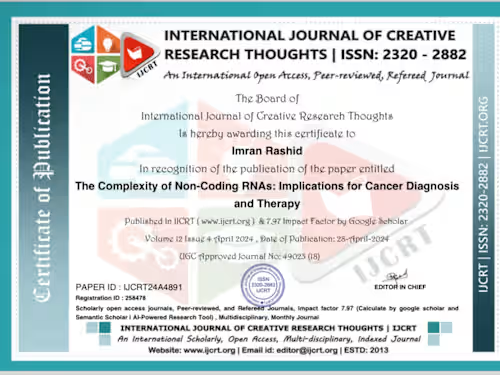
Role of Melatonin Receptors as Regulators of Neurophysiology
Contact for pricing
About this service
Summary
What's included
Role of Melatonin Receptors as Regulators of Neurophysiology
Melatonin receptors, primarily MT1 and MT2 subtypes, have emerged as critical regulators of diverse neurophysiological processes and promising therapeutic targets. These G protein-coupled receptors play a pivotal role in modulating circadian rhythms, sleep-wake cycles, neurotransmission, synaptic plasticity, and neuroprotection. Their activation triggers intricate signaling cascades, including cAMP, cGMP, and calcium pathways, while exhibiting crosstalk with MAPK and PI3K/Akt pathways. Moreover, melatonin receptors influence cognitive function, memory, and emotional regulation, underscoring their potential in neuropsychiatric disorders like depression, anxiety, and schizophrenia. Pharmacological targeting of these receptors has gained significant traction, with the development of selective ligands and investigative tools to enhance therapeutic efficacy. Notable applications include managing sleep disorders, pain, cancer, and neurodegenerative diseases. Furthermore, melatonin receptor agonists have shown promising results in preclinical studies for treating mood disorders and improving cognitive performance. Despite the challenges, ongoing research efforts aim to elucidate the molecular mechanisms, receptor heterodimers, and allosteric modulation, paving the way for innovative therapeutic strategies leveraging the multifaceted roles of melatonin receptors




